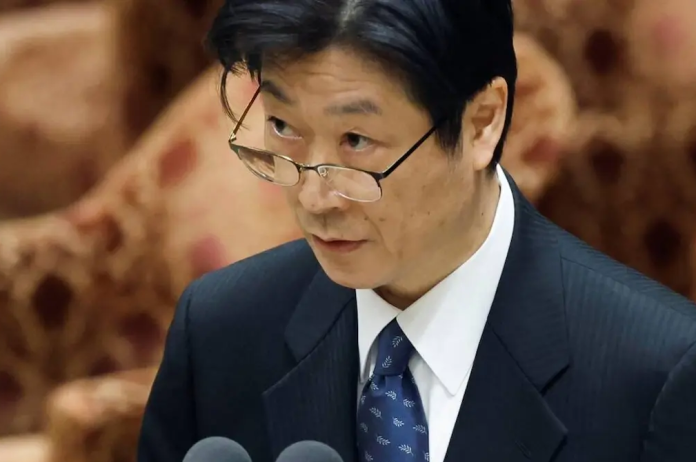Bank of Japan Deputy Governor Shinichi Uchida stated that the central bank would not raise interest rates when markets were volatile, according to Reuters.
Uchida’s remarks, which contrast with Governor Kazuo Ueda’s offensive comments last week when the BOJ unexpectedly raised interest rates, boosted Japan’s Nikkei average stock index and depressed the yen.
As we’re seeing sharp volatility in domestic and overseas financial markets, it’s necessary to maintain current levels of monetary easing for the time being.
The dollar rose to a session high of 147.50 yen and was last up 1.6 per cent to 146.59 after Uchida’s remarks. The Nikkei average was up 3 per cent, while the benchmark 10-year Japanese government bond (JGB) yield fell 1 basis point to 0.875 per cent. Takuya Kanda, an analyst at Gaitame.com Research Institute, said:
The BOJ hiked interest rates because it didn’t like the weak yen. Now, it appears to be suggesting a pause in rate hikes because it doesn’t like stocks falling. If the BOJ is watching markets so much in setting policy, there’s a chance it won’t be able to raise rates that much.
Last week, the Bank of Japan raised interest rates to levels not seen in 15 years and unveiled a detailed plan to slow its massive bond buying. Governor Ueda said the BOJ would continue to raise rates if the economy and prices moved in line with its forecast, indicating the likelihood of continued rate hikes in the coming years.
Investment time
A day after the Tokyo stock market suffered its biggest drop since 1987, Yuri Sekiya decided it was time to heed Prime Minister Fumio Kishida’s long-standing call for Japanese citizens to invest most of their $15 trillion in household assets.
Recent market volatility has become a test case for Kishida’s drive to transform Japan from a nation of savers to a nation of investors, which is crucial for the world’s fourth largest economy as it faces a rapidly aging population.
Kishida made NISA, first launched in 2014, a pillar of his “new capitalism” platform aimed at boosting household wealth after years of recession. Tokyo Stock Exchange data showed a record value for shares bought on margin in July. Such a risky strategy can boost returns but also amplify losses during a downturn.
SBI Securities, Japan’s largest online brokerage, claimed its website was overwhelmed by users shortly after the market opened on Tuesday. Some customers experienced difficulty accessing the website. A situation that lasted about an hour. There were customers who wanted to sell and others who wanted to buy on the dip, the spokesperson added.
There are more people considering investing now, but seeing the current situation might make them hesitate. Younger people are showing more interest in stocks, unlike our generation.
Kishida wants household income from investments to double to reduce reliance on the public pension system as Japan ages. Under his administration, the NISA programme has been overhauled; as of this year, the annual investment limit has been raised to 3.6 million yen ($24,400), and balances up to a certain level have become permanently tax-free.
As a result, the Japanese rushed to NISA, and according to the Japan Securities Dealers Association, the number of accounts grew by nearly 2 million in the first three months of this year. According to banking regulator FSA, there were about 23 million accounts in NISAs as of March, through which about $267 billion had been invested. However, many investors, especially newcomers, favour global or US mutual funds over domestic assets.
